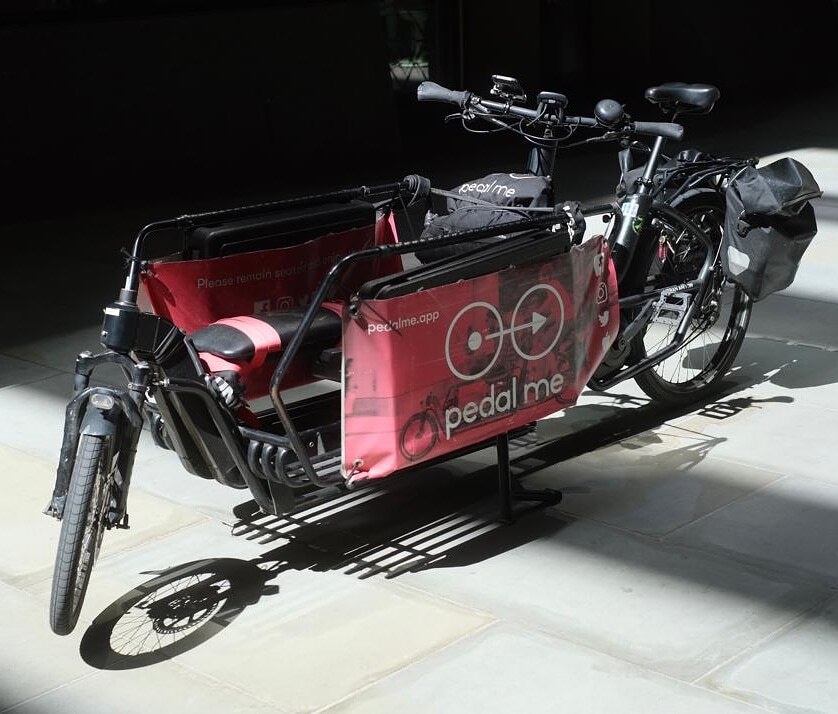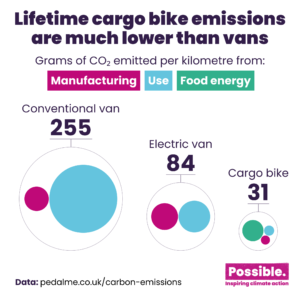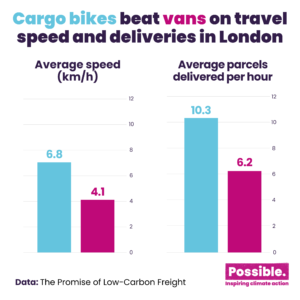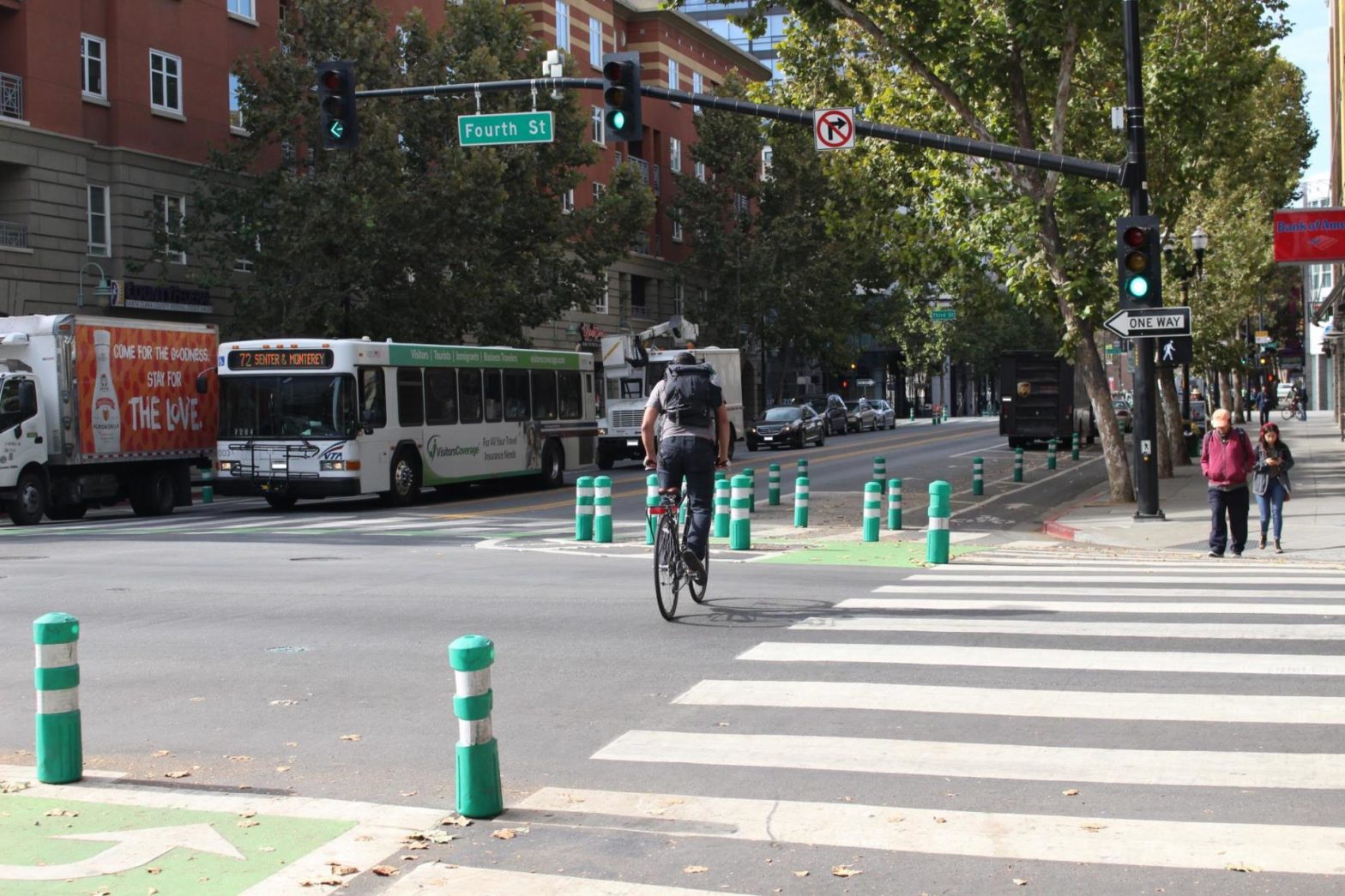
Photo: Cargo Bike (c) Pedal Me
E-cargo bikes can deliver goods faster in city centres
05 August 2021
by Christopher Carey
E-cargo bikes can deliver goods 60 percent faster than vans in city centres, according to a new study from the University of Westminster.
The study, commissioned by climate charity Possible, found that in central London, cargo bikes had a higher average speed and dropped off ten parcels an hour – compared with six for vans.
The bikes also cut carbon emissions by 90 percent when compared with diesel vans, and 33 percent when compared with electric vans.
“Cargo bikes could be the first step in responding to a myriad of challenges that cities are facing,” Ersilia Verlinghieri, lead author of the report told Cities Today.
“From tackling transport carbon emissions to reducing the negative health impacts of urban motor traffic, cargo bikes can be of assistance whilst simultaneously improving delivery times in densely populated areas.
“This report provides further evidence on the benefits that cities can gain from further investing in active travel modes for moving both goods and people.”
GPS data
Researchers used GPS data from London-based e-cargo bike firm Pedal Me, comparing deliveries on 100 randomly chosen days with routes that vans would have taken to deliver goods.
They found the cargo bikes saved nearly four tonnes of CO2 across the period – even when accounting for the food the riders consumed.


With home deliveries soaring during the pandemic and traffic levels slowly returning to previous levels, new demands on road and kerbspace are emerging.
This, coupled with environmental pressures, is forcing cities to reimagine the flow of goods on their streets.
Cutting emissions
The report estimated that expanding cargo bike services to replace 10 percent of the kilometres currently driven in London could result in saving 133,300 tonnes of CO2 and 190,000 kg of NOx per year.
At the same time, the bikes could reduce urban congestion and free up a total of 384,000 square metres of public space usually occupied by parked vans, and save 16,980 hours of vehicle traffic per day.
The study also claimed the potential benefits are not just specific to London, with the 100,000 cargo bikes introduced in Europe between 2018-2020 estimated to be saving, each month, the same amount of CO2 needed to fly about 24,000 people from London to New York and back.
Previous research has estimated that just over half of all motorised freight logistics in urban areas could be done by e-cargo bike, but the cost implications for businesses are still unclear.
The report’s authors said the government should consider cutting the tax rate on cargo bike deliveries, and allow more powerful e-bikes to be used in order to increase their use.
Image: Pedal Me











